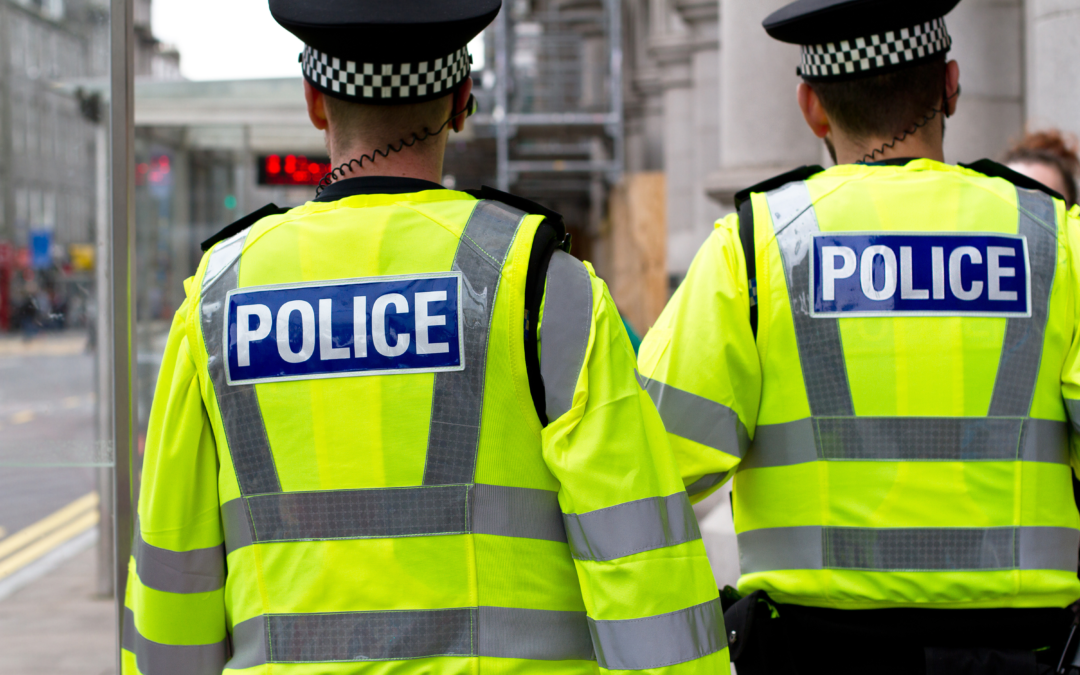Six Ways to Be a Great Police and Crime Commissioner
We’re now one year on from the 4th round of elections for Police and Crime Commissioners (PCCs) across England and Wales. It got us thinking about the blog we published around that time and which is just as relevant today.
At Leapwise, we work with PCCs and forces across the country to try and make policing work as well as possible. But how can they make a difference? Here’s 6 ways to be a great PCC.
An important, misunderstood role
The role of the PCC has not always been well understood – not just by the public, but by those working across public safety. With either a PCC, Police Fire and Crime Commissioner (PFCC) or a Deputy Mayor for Policing and Crime in place for the 43 police force areas in England and Wales, their main statutory responsibilities are to:
- Secure the maintenance of an efficient and effective police service for the area
- Hold the Chief Constable to account (including via their powers to appoint, suspend, or remove Chief Constables)
- Hold the police fund and other grants from central and local government
- Set the local policing precept (which is shown on council tax bills) and
- Issue a Police and Crime Plan.
PCCs also have powers to bring together local partners, commission services and make grants. They take on responsibility for emergency service collaboration and Fire and Rescue Services (in England only).
While important, low turnout in the latest elections makes this term of office a critical one for all PCCs to prove their worth – not least with a Labour government that has set ambitious targets (or ‘missions’ in fact) around policing and crime.
The Six Roles of PCCs
This range of official responsibilities is just the start of it. Working with the Association of Police and Crime Commissioners and speaking to PCCs past and present, Leapwise found that P(F)CCs have an immensely broad and challenging role. Each P(F)CC plays six main roles, and new P(F)CCs will have to make choices about how much time they or their offices focus on different aspects of the role. The big roles are:
1. Public Engagement
Effective PCCs listen to and meaningfully engage with the public, going beyond the ‘usual suspects’ and reflecting the diversity of the electorate. Their plans and priorities are based around the issues and concerns of local residents. They know how and when to communicate through different forms of media and campaigning, and use their political and party capital wisely. They are transparent in everything they do. Existing PCCs see public representation and connection as the central part of the role, that should never be overlooked.
“You’re not the chief constable. You’re the representative of the public.”
2. Local Policing (and Fire) Strategy and Accountability
Effective PCCs improve the quality of policing (and fire and rescue, where applicable) in their areas by setting ambitious strategy that has wide buy-in. They hold the force to account robustly and fairly, using evidence and building constructive relationships with their Chief Constables. They act impartially and demonstrate integrity, maintaining appropriate distance from operations. They use their budgets and powers in line with their policing priorities.
“The role is as a critical friend, not rubber stamping, and supporting the police force through thick and thin.”
3. Commissioning
Effective PCCs commission services for victims, crime reduction and criminal justice that are in line with their strategic priorities and reflect the needs of their communities. They get the most out of their commissioning budgets by engaging the right partners in their communities, seeking innovation, and co-designing for excellent service delivery. They have a clear view of what contracts to start, stop or continue over their term to ensure community safety, and robust procedures for managing contracts.
“You have resources, people and power. My greatest achievement was using that for cutting crime and supporting victims.”
4. Executive Leadership
Effective PCCs work through others; they establish appropriate relations and a healthy team dynamic in their office, including with their deputies, chief officers and staff team. They seek advice where they need it and bring in skills where they have gaps. They are credible and knowledgeable without needing to be the expert on everything, with a good grasp of the fundamentals of the sector, understanding of finance and risk, and ability to use evidence and data. They work on their leadership skills and use support when it helps get the job done.
“Build a good team around you… Once you’ve got that you can do anything.”
5. National Influencing
Effective PCCs use their local knowledge to influence national policy on crime and policing. They understand the national landscape and work with membership bodies, groups and stakeholders including government departments to have more influence on funding and policy choices that affect their communities. They have a good grasp of policy and strategy, and strategic policing requirements.
“You have a role in national threats and whether they are being appropriately addressed. PCCs should see themselves and people that work for them as part of a national effort.”
6. System Leadership
Effective PCCs use their budgets and convening power to influence local systems – including influencing local authorities and third sector partners. They get their issues on the agenda and coordinate effective community safety. They can work in partnership across the public, private and voluntary sectors to deliver change and prevent crime, using intelligent commissioning and taking part in or leading cross-sector boards and groups.
“It’s about how you bring other partners in to put crime prevention and community safety and criminal justice at the heart of what is happening.”
Making the most of a PCC role
The Association of Police and Crime Commissioners supports PCCs to make an impact across the country. Leapwise had the pleasure of supporting the new PCC intake through an induction programme last year.
We’re committed to helping PCCs reduce crime, develop effective relationships with policing leaders and partners, and tackle safety issues locally and nationally.
Get in touch with our team to discover how we build high performance teams and help PCCs, police leaders, and more to make a difference.



